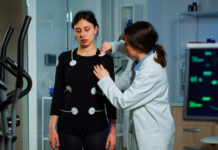Neurological care encompasses the diagnosis, treatment, and management of disorders affecting the nervous system, including the brain, spinal cord, and peripheral nerves. Advances in neurological treatment have significantly improved patient outcomes, offering new hope for individuals with conditions that were once considered untreatable. This article explores the latest advancements in neurological care, highlighting innovative treatments and their impact on patient health.
Understanding Neurological Disorders
Common Neurological Disorders
Neurological disorders can vary widely in terms of symptoms and severity, affecting millions of people worldwide.
Common Neurological Conditions
- Alzheimer’s Disease: A progressive neurodegenerative disorder characterized by memory loss and cognitive decline.
- Parkinson’s Disease: A movement disorder caused by the degeneration of dopamine-producing neurons in the brain.
- Multiple Sclerosis (MS): An autoimmune disease that affects the central nervous system, leading to a range of physical and cognitive symptoms.
- Epilepsy: A neurological disorder marked by recurrent seizures due to abnormal electrical activity in the brain.
- Stroke: A medical emergency caused by interrupted blood flow to the brain, leading to brain damage and loss of function.
Importance of Early Diagnosis
Early diagnosis of neurological disorders is crucial for effective treatment and management, often leading to better outcomes and improved quality of life.
Benefits of Early Diagnosis
- Timely Treatment: Early intervention can slow disease progression and alleviate symptoms.
- Improved Prognosis: Identifying and managing conditions early can lead to better long-term outcomes.
- Enhanced Quality of Life: Early treatment can help maintain cognitive and physical functions for a longer period.
Advances in Neurological Treatments
Pharmacological Treatments
Pharmacological advancements have led to the development of new medications that offer better control of neurological symptoms and disease progression.
Innovative Medications
- Disease-Modifying Therapies (DMTs): Used in the treatment of multiple sclerosis, DMTs can reduce the frequency and severity of relapses.
- Levodopa: A cornerstone in the treatment of Parkinson’s disease, levodopa helps replenish dopamine levels in the brain.
- Antiepileptic Drugs (AEDs): Newer AEDs offer better seizure control with fewer side effects.
Minimally Invasive Surgical Techniques
Minimally invasive surgical techniques have revolutionized the treatment of various neurological disorders, offering safer and more effective options.
Key Techniques
- Deep Brain Stimulation (DBS): Used to treat Parkinson’s disease, tremors, and dystonia, DBS involves implanting electrodes in the brain to modulate neural activity.
- Gamma Knife Surgery: A non-invasive treatment for brain tumors, arteriovenous malformations (AVMs), and other brain disorders, using focused radiation to target abnormal tissue.
- Endovascular Therapy: Used for treating aneurysms and strokes, this technique involves threading catheters through blood vessels to deliver treatment directly to the affected area.
Neurorehabilitation
Advances in neurorehabilitation techniques have improved recovery outcomes for patients with neurological disorders.
Innovative Rehabilitation Methods
- Robotic-Assisted Therapy: Using robotic devices to assist with movement and improve motor function in stroke and spinal cord injury patients.
- Virtual Reality (VR) Therapy: Employing VR technology to create immersive environments for cognitive and motor rehabilitation.
- Constraint-Induced Movement Therapy (CIMT): Encouraging the use of a weakened limb by restricting movement of the unaffected limb, promoting neural reorganization and recovery.
Stem Cell Therapy
Stem cell therapy holds promise for regenerating damaged neural tissue and restoring function in neurological disorders.
Applications of Stem Cell Therapy
- Parkinson’s Disease: Research is ongoing to develop stem cell treatments that can replace lost dopamine-producing neurons.
- Spinal Cord Injury: Stem cell therapy aims to repair damaged spinal cord tissue and restore motor and sensory functions.
- Stroke: Investigating the use of stem cells to promote brain repair and recovery following a stroke.
Gene Therapy
Gene therapy involves altering or replacing defective genes to treat or prevent neurological disorders.
Advances in Gene Therapy
- Spinal Muscular Atrophy (SMA): The approval of gene therapy for SMA has provided a groundbreaking treatment option, improving motor function and survival rates.
- Huntington’s Disease: Research is exploring gene-editing techniques like CRISPR to target and modify the genes responsible for Huntington’s disease.
- Leber’s Congenital Amaurosis (LCA): Gene therapy has been used to restore vision in patients with LCA, a genetic disorder causing blindness.
Technological Innovations in Neurological Care
Neuroimaging Techniques
Advancements in neuroimaging have enhanced the diagnosis and treatment of neurological disorders by providing detailed images of the brain and nervous system.
Cutting-Edge Neuroimaging
- Functional MRI (fMRI): Measures brain activity by detecting changes in blood flow, aiding in the diagnosis and treatment planning of neurological disorders.
- Positron Emission Tomography (PET): Provides detailed images of brain function and metabolism, useful in diagnosing Alzheimer’s disease and other neurodegenerative conditions.
- Diffusion Tensor Imaging (DTI): A type of MRI that maps the diffusion of water in brain tissue, providing insights into brain connectivity and white matter integrity.
Wearable Technology
Wearable technology is revolutionizing neurological care by enabling continuous monitoring and management of neurological conditions.
Innovative Wearables
- Seizure Detection Devices: Wearable devices that monitor physiological signals to detect and alert users to potential seizures.
- Movement Trackers: Devices that track and analyze movement patterns in patients with Parkinson’s disease, helping to optimize treatment plans.
- Sleep Monitors: Wearables that monitor sleep patterns, providing valuable data for managing conditions like epilepsy and sleep disorders.
Artificial Intelligence (AI) and Machine Learning
AI and machine learning are transforming neurological care by enhancing diagnostic accuracy and treatment personalization.
AI Applications in Neurology
- Predictive Analytics: Using AI to predict disease progression and response to treatment in neurological disorders.
- Image Analysis: AI algorithms can analyze neuroimaging data with high accuracy, aiding in the early diagnosis of conditions like Alzheimer’s disease.
- Personalized Treatment Plans: Machine learning models can tailor treatment plans based on individual patient data, improving outcomes and reducing side effects.
Integrative Approaches to Neurological Care
Holistic and Integrative Medicine
Integrative medicine combines conventional treatments with complementary therapies to provide holistic care for neurological patients.
Complementary Therapies
- Acupuncture: Used to manage pain and improve neurological function in conditions like neuropathy and migraines.
- Mindfulness and Meditation: Techniques to reduce stress and improve mental health in patients with chronic neurological conditions.
- Nutritional Therapy: Tailored dietary plans to support brain health and manage symptoms of neurological disorders.
Multidisciplinary Care Teams
Multidisciplinary care teams bring together various healthcare professionals to provide comprehensive care for neurological patients.
Team Members
- Neurologists: Specialize in diagnosing and treating neurological disorders.
- Neurosurgeons: Perform surgical interventions for neurological conditions.
- Physical Therapists: Focus on improving motor function and mobility.
- Occupational Therapists: Assist patients in regaining independence in daily activities.
- Psychologists: Provide mental health support and counseling.
Future Directions in Neurological Care
Regenerative Medicine
Regenerative medicine aims to repair or replace damaged neural tissue, offering new hope for patients with neurological disorders.
Emerging Therapies
- Tissue Engineering: Developing bioengineered tissues and organs to replace damaged neural structures.
- Exosome Therapy: Utilizing exosomes derived from stem cells to promote neural repair and regeneration.
Personalized Medicine
Personalized medicine tailors treatments to individual patients based on their genetic makeup, lifestyle, and other factors.
Advances in Personalized Medicine
- Pharmacogenomics: Using genetic information to guide the selection of medications and dosages for optimal efficacy and minimal side effects.
- Biomarker Discovery: Identifying biomarkers that predict disease progression and response to treatment, enabling personalized treatment plans.
Neuroprotective Strategies
Neuroprotective strategies aim to protect neural tissue from damage and slow disease progression.
Key Approaches
- Antioxidants: Compounds that reduce oxidative stress and protect neurons from damage.
- Anti-Inflammatory Agents: Medications that reduce inflammation in the nervous system, potentially slowing the progression of neurodegenerative diseases.
Advances in neurological care have revolutionized the diagnosis, treatment, and management of neurological disorders, offering new hope to patients and improving their quality of life. From innovative pharmacological treatments and minimally invasive surgical techniques to cutting-edge technologies and integrative approaches, the field of neurology is rapidly evolving. As research continues to advance, future developments in regenerative medicine, personalized medicine, and neuroprotective strategies promise to further enhance the care and outcomes for patients with neurological conditions. By staying informed about these advancements, healthcare providers can ensure that they are delivering the most effective and up-to-date care for their patients.




